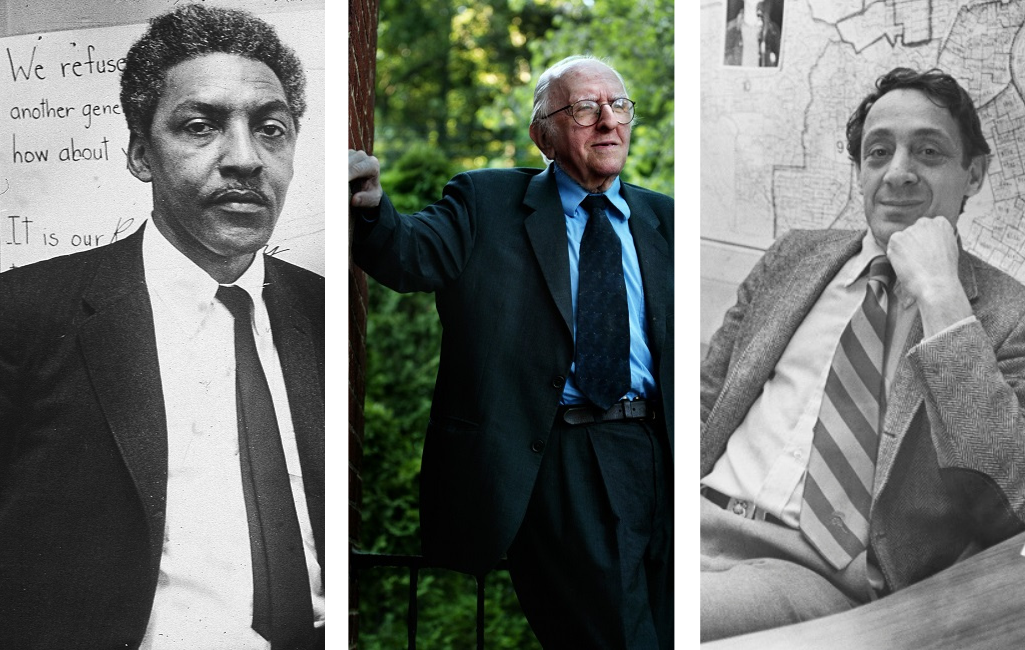Discrimination has always been an issue for the LGBTQ+ community, especially in the workplace. While there are several legal protections in place to limit unjust termination or treatment of an employee for their gender identity or sexual orientation today, none of this would have been possible without these past activists who took a stand. Here are three of the heroes that changed work standards for LGBTQ+ people in the United States:
Recently the subject of the Oscar-nominated film, Rustin, Bayard Rustin was an openly gay activist for labor, human and civil rights. As a gay man, Rustin was often criticized for his sexual orientation, especially among labor circles, but did everything he could to advocate for unions for all. In the 1950s and 60s, Rustin was largely responsible for developing unions for Black Americans in the workforce—something that was formerly only given to white workers. He became the head of the American Federation of Labor and Congress of Industrial Organizations’ A. Philip Randolph Institution, which furthered the implementation of these ideals, and was a key organizer of the March on Washington for Jobs and Freedom in 1963. In addition, Rustin dedicated his life to equal rights for Black Americans. He organized the Freedom Rides, worked closely with Martin Luther King Jr. and would later become an outspoken advocate for gay rights in the 1980s.
Harvey Milk was one of the first openly gay Americans elected to public office. Milk proudly advocated for gay rights in every area of life, specifically fighting against initiatives that discriminated against the LGBTQ+ community in any capacity. As a small business owner himself, Milk became active in San Francisco’s gay rights movement, and encouraged gay rights groups to coordinate with labor activists. Working together, they defeated the discriminatory Proposition 6, which would have banned people who were gay or lesbian from working in public schools, and successfully boycotted anti-union and anti-gay practices that were held by major corporations. Less than a year after being elected as San Francisco’s city supervisor, Milk was assassinated by Dan White, a disgruntled former city supervisor who cast the sole vote against Milk’s bill banning discrimination in public accommodations, housing and employment on the basis of sexual orientation. To this day, Milk remains ones of the greatest labor (and otherwise) activists of the LGBTQ+ community.
Frank Kameny wasn’t the first American to be fired for being gay—but he was the first to fight all the way to the Supreme Court. Kameny was a WWII veteran and an astronomer for the U.S. Army Map Service in the 1950s, but despite the importance of his skills during the Space Race, he was barred from federal employment due to his sexuality. Kameny fought the decision, and when the Supreme Court denied his petition, he continued to fight discrimination in the federal government. Though unsuccessful, the case would go down in history as the first known civil rights claim based on sexual orientation. Kameny went on to continue his advocacy for the LGBTQ+ community, co-founding the first gay rights organization in Washington, D.C. He was also responsible for organizing one of America’s first gay rights protests, picketing the White House in 1965 and helping file lawsuits for other federal workers who were fired for their sexual orientation. These suits eventually lead to rulings that forced the government to change its hiring policies. Kameny’s advocacy and dedication improved working conditions for generations of LGBTQ+ workers around the nation.
Explore more articles for the LGBTQ+ Community here.



